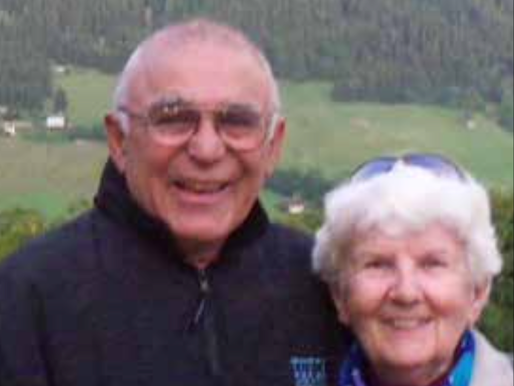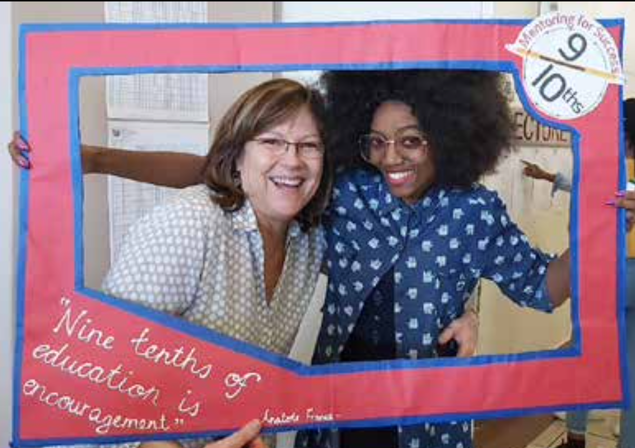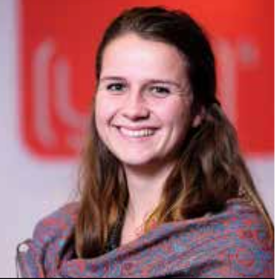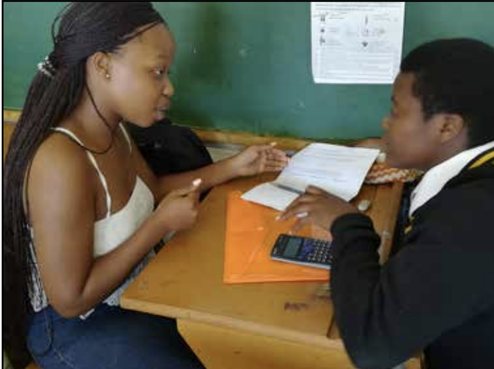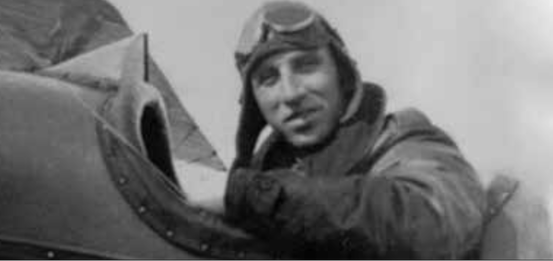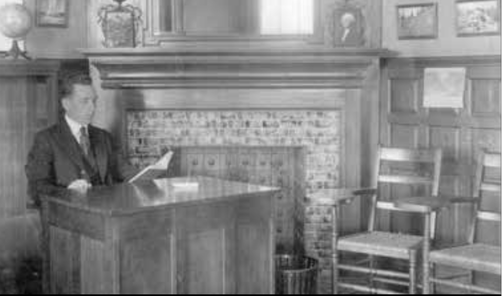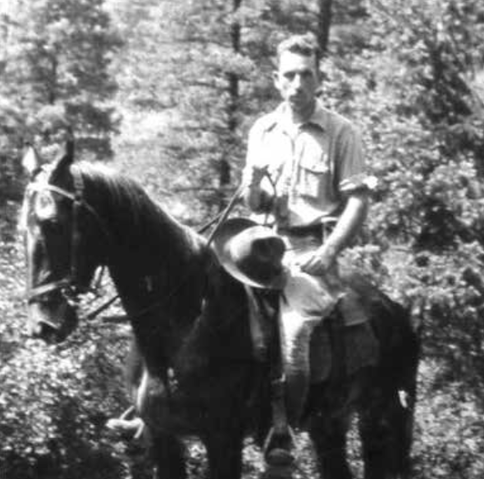
|
A self-made MacJannet devotee When Donald and Charlotte MacJannet donated the Prieuré in Talloires to Tufts University for a European campus in 1978, Rocky Carzo had been athletic director at Tufts for five years but had never set foot in France. Rocky was 50 when he first visited Talloires in 1982. Donald MacJannet, then 88, charged him with a special mission. “I want you to bring some life to this place,” Donald said. “They’re just doing academics. They’re not paying any attention to the rest of the body.” Thus began Rocky’s long relationship with Talloires and the MacJannet Foundation, as well as a series of idiosyncratic MacJannet-style traditions that survive to this day. The first of these was the MacJannet Games, whose events required not only physical prowess but also mental acumen and teamwork, not to mention a good grasp of local geography (one event was a relay race through the streets and hills of Talloires). At roughly the same time, Rocky started a “Tufts Alpine Fitness” class that evolved in 1982 into the annual St. Germain Pilgrimage, whose participants run, jog, bicycle, or drive cars up to the Benedictine monk’s chapel high up in the hills above Talloires. Although Rocky retired as Tufts athletic director in 1999 after 26 years, he remained active with both Tufts and the MacJannet Foundation almost up to his death this year on January 16 at age 89. As perhaps the only member of the MacJannet community who first encountered Donald and Charlotte in middle age, he brought a unique appreciation of their values. —Dan Rottenberg When the Olympics came I was the Tufts European Center’s director in the late 1980s when Albertville was chosen as the site of the 1992 Winter Olympics. Since Albertville was just a half-hour drive from Talloires, I immediately began plotting a way to involve the Prieuré. Rocky Carzo, then Tufts athletic director as well as a member of the European Center faculty each summer, became my natural ally. With the University’s support, he and I made a special trip from Medford to Talloires to meet U.S. Olympic Committee members and host them for several days of visiting Olympic sites and introducing them to the Prieuré. As a result, the committee members chose the Prieuré as their official headquarters, and the people of Talloires opened their hearts and hotels and restaurants to U.S. Olympic athletes and their families. Rocky and several current and former MacJannet Foundation trustees were on hand for the Olympics, and the town of Talloires was featured worldwide during the extensive mass media Olympic coverage. —Mary Harris ‘You can do it’ In the realms of “mind, body, and spirit,” Donald and Charlotte MacJannet championed physical well-being and athleti- cism— not to mention competition. Rocky Carzo bonded with them as an advocate for fitness and team building— a coach whose cause was the construction of character. His can-do spirit was infectious and inspiring. He helped us climb mountains by putting one foot in front of the other. Looking up at La Tournette, I can hear him saying, “You can do it; just take the first step.” —Tony Cook Common-sense counsel I met Rocky only after joining the MacJannet Foundation in 1996 but quickly came to have the highest respect for his honesty, straightforwardness and infectious personal warmth. I especially appreciated the close relationship and superb advice I enjoyed during my presidency of the Foundation, when he provided much needed common sense and wise counsel as I was trying to manage the Foundation’s transition to the post-MacJannet period. —John King Magic and electric He was a magic and electric personality. —George Halsey North Star Rocky was an indomitable spirit, a “North Star” for both athletes and colleagues. I remember his consistently wise counsel during my earliest days with the Foundation, when I worked to support Donald and Charlotte’s initiatives. His image stands alongside theirs when I think about their legacy of peaceful service. —John F. McJennett III Pepping up facility meetings Rocky truly reinforced the MacJannetness in all of us. And how many liberal arts colleges can say that their athletic director elevated the deliberations of arts and sciences faculty meetings on a broad range of topics, including academic policy? I wish I had some videotape of those marvelous occasions. We’d be mired in stuffy discourse; then Rocky would stand up and humorously break through our stilted nonsense, steering the professoriate to wiser decisions, always in the direction of trying to do a better job at educating the whole person. —Robert Hollister
1 Comment
A conversation with our first-place Mac Prize winners By AMY CARZO Editor’s note: Last year’s first place MacJannet Prize was awarded to the Nine Tenths Programme at Rhodes University in Makhanda, South Africa. Following the announcement in November, Amy Carzo of the MacJannet Foundation sat down with the program’s two administrators: Diana Hornby, the university’s director of Community Engagement; and Anna Talbot, coordinator of Rhodes University’s Community Engagement Office. Amy Carzo: How did the Nine Tenths Programme get started? Diana Hornby: When our vice chancellor, Dr. Sizwe Mabizela, was inaugurated in 2014, he said, “We are not just geographically located in Makhanda, but we are of and for the city.” It was a deliberate departure from the old ivory tower kind of image— to say that we do not live in isolation and we are inextricably bound and we are part of our community. After his inauguration, he made a commitment to work in public education, the local municipality, and to achieve Internet access for the city. First he set up a committee (including the dean of education and key community members) to look into how we might begin to transform public education in the city. In 2011, only nine people entered the university from the local community. By 2020, that number had grown to 120. In 2016, Makhanda was one of the four worst- performing school districts in the country; in 2020, results showed we were the best performing city in our province. We naturally started at the top end and created these matriculation programs to create that kind of impact and access to our university, because we can’t be a university that educates everyone else’s children and not our own. Once the Programme was in place, we started to see that many of the deficits we were dealing with were created in early childhood. One study showed that 80% of our city’s third grade children could not read for meaning. So we realized that it was futile just to work at the top end; we actually needed to go back to early childhood education. We couldn’t do that ourselves as a university; we had to bring everyone working in education in the city together. So we put together educators in primary, middle school, and high school, who previously functioned separately, to develop this pathway. Now we all see ourselves with the same goals, complementing each other and getting excited about it. Amy: What’s the meaning of the program’s name— “Nine Tenths”?
Anna Talbot: It comes from French poet Anatole France’s remark that “Nine tenths of education is encouragement.” So we really focus on mentoring, as opposed to tutoring, to give students that encouragement. We work with matriculating students in their final year of high school, to help equip them with the skills that will get them through that year. It happens in three phases: Phase 1 teaches them how to set goals. Phase 2 hones in on study techniques. Phase 3 creates guidance to set up a trajectory beyond school—something that is positive and engaging and worthwhile doing, once they leave school. These three phases occur across nine sessions at strategic points through the academic year. These sessions are one-on-one, matching one student volunteer mentor with one mentee, and last for about an hour each. Many of these student volunteer mentors join us in their second year at the university and continue through to fourth year. But that’s their decision. But we have quite a high retention among the volunteers, because of the relationships they form. And mentors often go beyond the planned nine sessions, meeting privately between sessions as well. Many of our volunteers come from very similar socio-economic circumstances and never had that support, so they appreciate its importance. And even though they are 17 or 18 years old, they connect much better with someone who is dealing with similar issues. This is the exact reason why we prefer student mentors over academics (although staff are allowed to become volunteer mentors too). What makes the program unique is that volunteers are not tutoring a subject; they’re imparting life skills. Some student volunteers who’ve matriculated within the past few years can pass on tips about writing exams, subject knowledge— that sort of thing. It’s more a big brother, little sister sort of familial relationship than a teacher relationship. Amy: What was Rhodes University’s original mission? Diana: The university was established in 1904. It’s a relatively small university, in a semi-rural town: Makhanda. Also, during apartheid, Rhodes was designated for whites only. There was strong separation between the university and the community at that time. After apartheid ended, in 1997, all universities were mandated to introduce community engagement. So at that point, the aim for the university was to play a much broader role in society. When we speak of the purpose of higher education now, we speak of two main roles: How do our academic projects contribute to social and economic development? And how do we grow socially responsible young people to be the change agents that our civil society needs? And you can see that in our numbers: Almost 50% of our 8,500 students are involved in some community engagement. And almost half of those are volunteers. Amy: What’s it’s like for a typical student who participates in the program? Anna: Before the mentors work with the learners, our partner organization conducts training to teach them the skills that they will pass on— like being able to regulate and take control of your own learning. Most of Makhanda’s schools are located in low socio-economic areas with very minimal/non-existent Internet access. So we’ve been really lucky that a local Internet service provider has installed Internet service in the schools, which has really made mentoring online much more accessible. Especially during COVID, we really had to think innovatively about how to build those relationships between mentors and learners. Now, with these Internet connections, you can have much richer experiences. We’ve also been able to increase the number of mentees/learners, because we don’t have to transport people back and forth. We’re not bound by the number of seats on a bus. Diana: I think for a lot of students, it’s all about the relationships. Our mentors have said being engaged in the program holds you accountable. The mentees push you to learn these skills because you have to teach them. There’s plenty of mutual learning as well. A lot of the mentors say, “We can’t tell the mentee how to use a timetable if we’re not using a timetable ourselves.” Things like that. There are also some bright young school kids who are capable of managing at university but didn’t get good enough marks for a bachelor pass (which is what you need to attend university). In those circumstances, we offer three options:a second chance schooling at one center called the Assumption Development Center; a standard matriculation school; or a “bridging year.” If their grades are not high enough to get into Rhodes, then we offer them the bridging year. We have a partnership with Gadra, a “second chance” school. For one year, these students take two subjects at Gadra and one subject at Rhodes. Then the following year, if they’ve passed the subject at Rhodes and they’ve improved on the other two, they’re automatically accepted into Rhodes. Amy: How is Nine Tenths funded? Diana: It was an unfunded mandate. We get funding from corporations and foundations. Our salaries are paid by the university, but the money we need to run programs needs to be found elsewhere. Amy: Can you share a story of a student who benefitted from the program? Diana: Zanele Toyisi was a mentee of our pilot program in 2015. The following year, she became a mentor and mentored people at her previous school. And a year later she became a student leader, mentoring mentors to work with the mentees. Now she is a teacher at our partner organization and a board member there as well. So she’s come through the full iteration of the program. And she’s thrived in that education space and it’s formed her career and who she’s become in the community. She studied environmental science, and now she teaches geography. Amy: Looking forward, what’s next? Diana: At the end of every year, we re-conceptualize the program, because there were areas left wanting. Then, last year, we realized the program is now running on oiled wheels. And we see the results in the impact data. So what now? Do we sit on this amazing model, or do we share it? We went to other universities and asked if they were interested. Two universities expressed interest, and in fact, the Talloires Network and winning the MacJannet Prize helped us enormously. And next year, we’ll be rolling the program out to two other universities. We feel we have a responsibility to share these models we’ve developed. It’s not about trying to sell it or benefit financially. We tell other colleges: Rather than everyone creating and learning from the beginning, here’s learning you can build on. Here’s something you can adapt to suit your circumstances. In that way, we can contribute to the global stock of knowledge by having mastered something and developed a model of excellence in our own space. If one child out of a family has a Rhodes University degree, that changes the circumstances of the whole family. A study by one of our units shows that 96% of Rhodes students are meaningfully employed in about a year after graduation. So students know now that the program is a pathway to success. With their efforts and a good degree, they can change not only their own circumstances but those of their whole family. They pull up the other children, who see them as their role models. The earning power of that one family member changes the circumstances for the rest of the family. It is true intergenerational change. Disappointment and failure marked Donald MacJannet’s post-college years. What changed? By HERBERT JACOBS In the spring of 1916, Donald MacJannet had just turned 22, a handsome, blue-eyed, persuasive young Lochinvar armed with a freshly minted bachelor’s degree from Tufts University, a jangling Phi Beta Kappa key, and a zeal to conquer the academic world. But the academic world, he found, was indifferent to his credentials. Private school recruiters said they were impressed by his academic record but cautioned him to contact them only after he had some teaching experience. His persistence paid off when he serendipitously encountered William H. Church, head of St. Albans in Washington, D.C., a prep school founded in 1909 as an Episcopal school for boy choristers at the National Cathedral. At the end of their lengthy interview, Church surprised Donald by asking, “Would you sign a contract to come to St. Albans in September, teaching lower school subjects—everything?” “I would be very happy to come,” MacJannet replied. “But would you mind telling me why you hired me at once, when all the other schools where I have applied demanded that I get some teaching experience first?” Church replied that when he arrived at St. Albans the previous year, “it had an experienced staff, but that staff was under the thumb of the athletic director. St. Albans was famous for its football team, basketball team, baseball team, and the athletic director ran the school. He told me what I should do and what I should not do, just as he told the other staff members. And I said to myself that I would have my own staff, men that I can train myself, and who will do what I think is the right thing to do.” Thus, thanks to the school’s overemphasis on athletics, in which he himself had been so inadequate, Donald started teaching in Washington’s leading preparatory school, most of whose students were the sons of high-ranking government officials. Two were Elliott and James Roosevelt, sons of Franklin D. Roosevelt, then serving as undersecretary of the Navy under President Wilson. When Eleanor Roosevelt drove to the school in her Model T Ford to pick up her sons, Donald (who taught Elliott Roosevelt but not James) often assisted Mrs. Roosevelt by cranking her car (Fords were not yet equipped with self-starters). It was perhaps the first example of Donald’s knack for cultivating friends in high places. Mrs. Roosevelt amply repaid all that Ford cranking a quarter-century later, when as First Lady she helped Donald obtain financing after he turned over his camp on Lake Annecy in France to house French war orphans during World War II. Jonathan Daniels, son of Navy Secretary Josephus Daniels, was also enrolled at St. Albans. Neither he nor Elliott Roosevelt did very well as students, MacJannet found, though Daniels later performed ably as editor of his father’s newspaper, the Raleigh (N.C.) News and Observer. Unruly students Donald’s lack of teaching experience soon became evident when he encountered difficulties maintaining order in his classroom. His boys would throw things and yell, to the point where the mild-mannered next-door teacher protested. At a time when teacher guidebooks were unknown, Donald was at a loss until Headmaster Church came forward. Usually, Church suggested, just one boy was the bad actor: “Take him up to the classroom with you when it is empty and you are preparing lessons or reading,” Church said. “Have him sit in a corner, facing the corner, and go ahead with your work. Don’t speak to him. Let him just meditate there. If you do that for a few days, he’ll be quite different.” Donald tried this remedy and found that it worked. Since he was already philosophically opposed to physical punishment, bullying, and violence in education, Donald made this practice one of his principles when he opened his own school nearly a decade later. Donald’s salary that first year was $800, plus room and board and free laundry service— up to 21 pieces of laundry each week, with each sock and handkerchief counting as one piece. Two critical lessons When his contract was renewed (at $900) for the second year as head of the school’s French department, St. Albans sent Donald to the Harvard summer school to brush up on his French. For the rest of that summer of 1917 he became hut master for the Appalachian Mountain Club at the organization’s hut on Mount Madison, in the Presidential range of the White Mountains. Here he cooked simple meals for the climbers scaling the rugged slopes. One guest at the hut, Dr. A. A. Crane, had just returned from the World War battlefronts in France. The U.S. had formally entered the war in April, 1917, and American industry was busy producing armaments for the Allies, but Donald had absorbed the prevailing view among his fellow St. Albans teachers that this was “Wall Street’s war.” Crane’s descriptions of the fighting, as well as the threat posed by a German victory, changed Donald’s view. Able-bodied American men like himself, he began to feel, had a duty to join the war effort. The prospect of a free trip to France reinforced those feelings. Meanwhile, back at St. Albans, Donald was commandeered against his will to direct a student variety show to raise money for a war charity. Throughout the preparations, he agonized that the whole venture would fail abysmally. The variety show’s subsequent success brought him no satisfaction— only the fear that he would be saddled with more such tasks in the future. Profanity in the barracks That fear may have provided the final push that caused Donald to tell Headmaster Church late that fall of 1917 that he planned to volunteer for the U.S. Air Service, then a branch of the Army Signal Corps (at a time when America had no separate air force). Church appealed to Donald’s conscience: “You can’t leave the students in the lurch,” he said. “At least you must stay with the school until you are actually called into service.” Donald agreed, so every week he told his classes, “This is perhaps my last week, so let’s make it a good one.” But as the weeks wore on, this plea to the students wore so thin that Donald had to discard it. He wasn’t called to active duty until mid-June of 1918. When Donald received the Army’s telegram to report for aviation ground school training at Princeton, N.J., he stepped into a new and, for him, shocking world. After two years in the refined atmosphere of St. Albans, with its morning and evening chapel, he was horrified by the barracks profanities of military trainees. “They were all college men,” he later recalled, “but they had a vocabulary that shocked me. At first I was quite turned off from them. But I soon found out that they were wonderful fellows, and I forgot their language.” Instead of France, Oklahoma By this time, the German drive on Paris had been halted, and the subsequent infusion of fresh American troops was beginning to turn the tide of the war in the Allies’ favor. Of the 200 recruits who entered the class with Donald, only 54 survived the cuts. Donald finished the ground training course as head of the class in all divisions. The new cadets were transferred to an Army camp in Dallas, Texas, where Donald and his group found themselves quartered at the agricultural fairgrounds, in the section reserved for prize hogs. Here their biggest concerns were the boredom produced by constant drilling, and the fear that the war would end before they could reach France. The word passed down from the higher-ups was that any airman could get to France in a hurry if he volunteered to go as an observer. MacJannet and some of his colleagues promptly volunteered. Soon they found themselves on a military shuttle train that took them to Fortress Monroe in Virginia to train in handling heavy artillery. They were still at Fortress Monroe on November 11, 1918, when the Armistice ended any hope of their seeing France. Instead, the group was transferred to Post Field, Oklahoma, a forlorn place where pedestrians crossed the muddy streets on stone boats hauled by oxen, at a dollar per crossing. Here the trainees performed light artillery work and Donald received one silver wing, certifying him as a trained observer. But nothing more. First flight Then these flying enthusiasts decided to take training as aviators. At a pleasant stretch in Memphis, they roved the countryside on weekdays, loading crashed planes on trucks to be hauled away. Among these fledgling pilots was Ralph Damon, who remained a friend of Donald years later when he became president of TransWorld Airways. Next the trainees were shuttled to Carlston Field, in Arcadia, Florida. Here Donald found himself badgered by a savage instructor who repeatedly assured Donald that he would kill himself because he was such a terrible pilot. Coached by a friend, Donald improved until the instructor begrudgingly asked Donald for a handkerchief, which he affixed to the plane’s tail, signifying, “Pilot starting first solo flight. Give him a wide berth.” Soon Donald completed the necessary work for his second wing. But with the war over, and no academic job available so late in the session, he had to remain in the service for several more months. At this point Donald was stricken with the Spanish influenza epidemic that swept the U.S. and Europe in 1918. In a roomful of 40 other victims, where the chief remedies seemed to be Epsom salts and whiskey, he nearly died. Scrambling out West In March, 1919, MacJannet, now a reserve second lieutenant, and a comrade with the same rating set off, resplendent in their uniforms and glistening aviator’s wings, to tour the American West. When their money ran out en route, Donald took a job harvesting wheat in the Great Plains, which he found much more rugged than piloting a plane (although he found the $10 a day pay fabulous). After resigning as a harvest hand, he journeyed to Colorado, where he found work as a chef at Pike’s Peak, a job that entitled him to call himself “the highest paid chef in the world.” Later that summer Donald moved on to Yellowstone Park in Wyoming, where he ran a team to haul wood and ice and fetch hot water from Old Faithful. Returning to St. Albans in September, 1919, Donald encountered both the benefits and drawbacks of postwar inflation. His pay increased to $1,200 for the year from the previous $900, but he had to replace the civilian clothing he had auctioned off when he joined the Army Air Corps. A new suit, he discovered, would cost $100. To pay for it, as well as other expenses, he obtained the football schedules of nearby colleges and arranged to print them on 2,000 desk blotters. He sold the blank squares next to the football schedules to Washington department stores for advertising, rented a motorcycle and sidecar, and delivered the free blotters to the college campuses. Opportunity, or scam? With his school’s approval, Donald arranged to leave St. Albans at the end of the 1919-20 academic year to seek further training in French at the Sorbonne in Paris. His last year at St. Albans— teaching French, German, and English— passed smoothly, and he was gratified when, at the end, all his students fared well on their college board exams. In the spring of 1920 Donald noticed an advertisement placed by a teacher in an Eastern private school. The man sought assistants to help guide a group of college students through Europe, but he demanded $1,750 for this privilege. When Donald wrote that he had only $400, the promoter agreed to take him for that amount, which should have aroused Donald’s suspicions. At the New York rendezvous that July, Donald and the students found that the promoter had switched ships and signed up with a tour agency in order to save money. For the English segment of the tour, the tour agency provided three aged taxis at Southampton; but two of the cars broke down near the end. The promoter frequently disappeared and finally vanished altogether in Rome, having reimbursed Donald’s $400 fee in depressed Italian lira, which brought Donald less than $300. Fortunately for the 13 students, Donald had their return boat tickets in his own possession. In Genoa he found a ship for them to return on. But he had never bought a return ticket for himself. After seeing the students off, Donald took a solo sightseeing tour through Italy, Germany, Belgium, and Holland before arriving in Paris in time to register for the Sorbonne’s two-year course for potential instructors in French. Donald presumed that this course would lead to a teaching post in some American college. Instead, it led to a career as an educator in France that would last— with only a World War II interruption— for more than 60 years. Excerpted and edited from Educator of Kings, the biography of Donald MacJannet. |
© 2019 MacJannet Foundation. All rights reserved.
MacJannet Foundation
396 Washington Street, Suite 200
Wellesley Hills, MA 02481
MacJannet Foundation
396 Washington Street, Suite 200
Wellesley Hills, MA 02481

